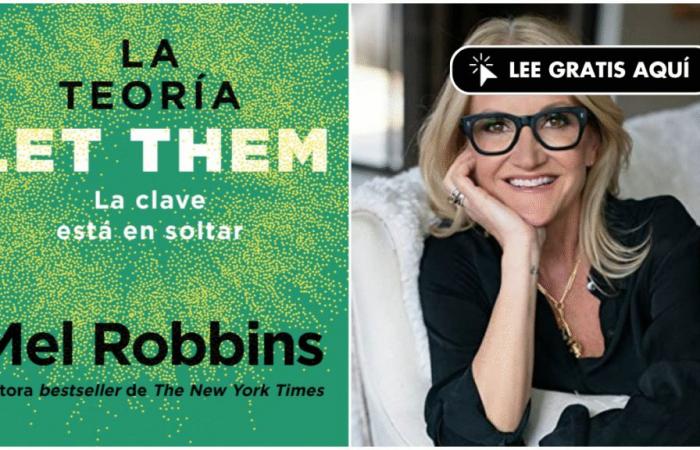The book Let Them theory It is already a freak worldwide. And it is not surprising, because we live a time when mental health and personal development occupy a priority place. With More than four million copies sold and occupying the first place in the lists of The New York Times, Sunday Times y Amazonit is bestseller of Mel Robins It has positioned itself since its launch, in 2024, as one of the most successful self -help books of recent years. In addition, its popularity extends to networks such as Tiktok and Instagram, where Robbins clips explaining the method add hundreds of thousands of interactions.
In this book, the speaker puts again in the center The importance of letting go of what prevents us from advancing With his latest book, which now arrives In addition to Spain in format audiobook with Audible, which has already generated more than 100,000 presales and reached first position on the Bestsellers list of the New York Times before even its official launch. His premise, as simple as powerful, has triumphed in a world that seeks Practical and accessible tools To manage Stress, anxiety and interpersonal relationships.
What is the Let Them theory ‘about
Let Them theory It is born from Robbins’s finding that, too many times, We invest energy trying to control the perception and reactions of those around us. According to the author, this effort is not only frustrating and unsuccessful, but it also makes us badly, since it feeds toxic comparisons and increases anxiety.
The key, says Robbins, resides in two words in English: «let them», Which in Spanish would be” let them go. ” With this formula, invites the reader to Accept that you cannot control decisionsopinions or emotions of others. And in addition, it advocates to redirect that effort towards aspects of life where we can influence, such as our own well -being, personal goals and quality of our relationships.
This theory began to circulate on social networks, thanks to Mel Robbins, in 2023, maintaining that «The problem is not you, but the power you give to other people»By worrying about their judgments, opinions and behaviors. Through her homonymous book, the author details how these two words can act as an emotional ‘firewall’allowing to forward energy in own objectives, goals and personal happiness.
Practical applications for day to day of this theory
Mel Robbins, successful speaker, built his reputation with “immediate action” formulas backed by neuroscience. Your Ted talk The 5 Second Rule and his homonym podcast catapults her to a global audience. With its direct style, Robbins proposes not falling searched theories, but to apply tools that can be applied from the first moment. This is shared in your book Let Them theorythat It is basically based on letting three main injuries:
- Fear: Often fed by our need to control results and everything around us.
- Comparisons: They are, for the author, mental traps that undermine our self -esteem.
- Expectations: Own and others, they are constant source of frustration and you have to let them go.
Focus better
Instead, Robbins proposes that, instead, We must focus on active pillars:
- Welfare: Make brief breathing breaks and consciousness practices to strengthen our inner calm.
- Goals: We have to divide great goals into daily microatings, in order to make sure we have small victories.
- Relations: Put healthy limits and encourage gratitude, with the aim of creating and maintaining authentic connections.
@Irene.Albacete This theory has greatly improved my relationships. Do you already know this Let Them theory of Mel Robbins? #Personal Relationships #Pinionajena #Insegurities ♬ Last Hope – Steve Ralph
Although it seems quite obvious, Let Them theory It has become a worldwide success because we live in an environment in which “being up to date” can become a burden, and in which release It is a Immediate relief. Actually, everything is about Apply detachment emotionalwhich, according to experts in neuroscience, active brain networks associated with well -being and reduces cortisol production, stress hormone. In addition, small daily achievements reinforce reward circuits, consolidating positive habits and, ultimately, improving our quality of life.






